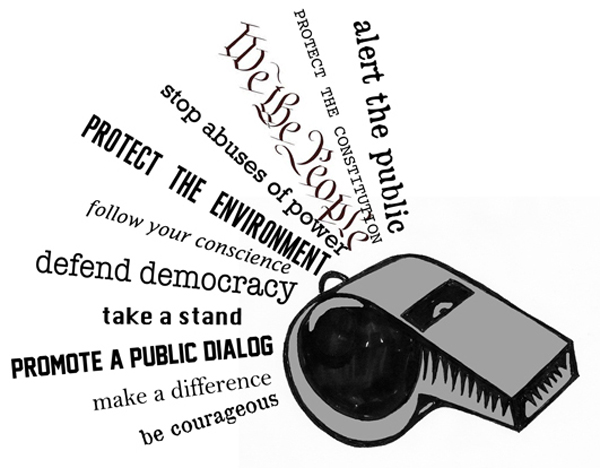Antoine Deltour, a former PricewaterhouseCoopers (PwC) employee, attracted international attention on illegal tax agreements between Luxembourg authorities and multinational corporations by leaking 28,000 pages worth of information on tax agreements between governments and businesses.
The leak, dubbed Luxleaks, shed light on systematic and illegal practices undertaken by various multinational corporations, as states such as the Netherlands and Ireland. Deltour was praised by multiple European deputies, and named the European citizen of the year.
In October 2010, Deltour was working late and found tax rulings in the employee database. The rulings described secret fiscal agreements between governments and multinational corporations. Deltour realized the content of the documents and copied them.
During the summer of 2011, Deltour was contacted by a journalist Edouard Perrin. He sent Perrin the documents. In May 2012, “Cash Investigation”, a French TV program, covered the story, entitled “Tax Havens: the small secrets of big businesses”, which focused on the documents provided by Deltour. Following this media coverage, PwC pressed charges anonymously.
By November 2014, journalists under the International Consortium of Investigative Journalists published long investigations based on Deltour’s documents. The revelations made by these documents allowed the European Commission to undertake various investigations on the fiscal practices highlighted by the LuxLeaks.
“I’m neither a righter of wrongs, nor a martyr”
Deltour claims not to be a political activist, or to have any malicious intentions to undermine PwC. He does not consider himself a vigilant, or martyr.
“I did not want to stigmatize a country or my employer”, asserts Deltour. Deltour does not consider himself being a whistleblower, but part of a greater movement that tackles neoliberal fiscal practices by providing information about offshore finance centers and financial justice.
“Acquittal or shame”
However, Deltour may face hard consequences, as he is branded as an anti-capitalist by Roger Hayard, the Luxembourg police commissioner, and may be charged for theft, and the violation of state secrecy laws. His trial began on May 26. Deltour risks jail time and a fine of 1.25 million euros. After the eight-day trial, Deltour managed to prove he acted in view of the public interest. His judgement will be announced on May 29.
Multiple citizen groups, or non-governmental organizations describe the absurdity of this situation. The LuxLeaks allowed Luxembourg’s authorities to expose 350 multinational corporations and the illegal tax practices, and allowed them to save billions of dollars by escaping tax levy.
Following the leak of documents, Deltour was applauded by European deputies, and invited to the European Parliament to discuss the importance of whistleblowers and how states have a duty to protect whistleblowers.
As a result of the Panama Papers, LuxLeaks, and SwissLeaks, The European Commision decided to adopt a new Directive on the Protection of Trade Secrets, to guarantee business secrecy. The Directive is meant to protect companies from “economic and industrial espionage.” As per the Directive, businesses are guaranteed the right to press charges in case of theft or the leak of confidential information. The European People’s Party have urged the adoption of the directive after one out of four european businesses had confidential information leaked in 2013. This Directive is said to be subordinate to freedom of information and the duty of whistleblowers to expose “an error, an inappropriate behaviour or an illegal activity” in order to “protect the public interest.”
Journalists, investigators, and whistleblowers are worried about the impact this directive will have on their duty to inform citizens. The Directive’s primary goal is to protect the flow of information between businesses and governments, but might pose a danger for whistleblowers as they seek to expose illegal agreements by stealing corporate information. European deputies have urged the adoption of two exceptions under this directive. The first exception guarantees the respect for the liberty and plurality of the media. The second exception requires whistleblowers to prove they leaked information to “protect the public interest.”
The European Federation of Journalists urges the European Commission to reconsider the Directive by arguing that it limits journalists’ “ability to investigate and report about businesses” whilst putting them at risk to be convicted for a crime. “The newly adopted Directive still raises doubt as to whether journalists and in particular their sources, in particular whistleblowers are appropriately protected,” asserts Reporters Without Borders.
The Directive creates a high level of uncertainty when it comes to the repercussion they might face. It is not clear how the distinction can or will be made between an illegal leak of information, and a whistleblower who desires to protect the general public interest. Journalists and whistleblowers are left to face the arbitrary judgement of states, corporations, and criminal law.
Whistleblowers need to have a formal and legal protection which requires the Directive to clearly state that they cannot be convicted. Their protection depends today on watchdog organizations such as the European Federation of Journalists, or Reporters Without Borders, to monitor how and when European states misuse the Directive, so as to safeguard journalists’ and whistleblowers’ rights.
 Log in
Log in









